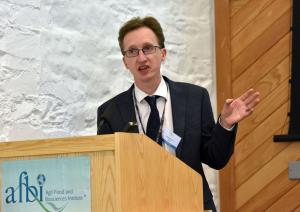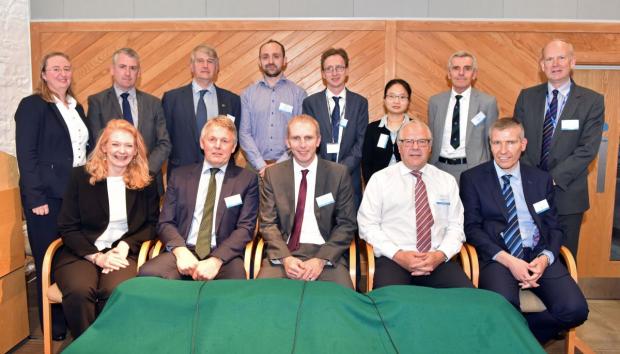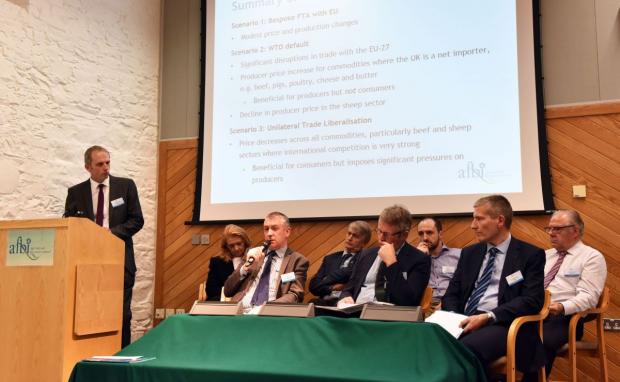Over the past year, Professor John Davis, Dr Myles Patton and Dr Siyi Feng, economists in the Agri-Food and Biosciences Institute have been leading a UK-wide project analysing the impacts of three potential post-Brexit trade scenarios on UK agriculture. The work is funded by the four UK Government administrations.

The results of the project were presented at a recent industry seminar held at AFBI, Hillsborough. Over 100 industry stakeholders attended to hear a summary of the report findings delivered by Dr Myles Patton. The report represents the first comprehensive UK wide analysis of:
- a bespoke free trade agreement with the EU, very close to the status quo
- a default position, in the absence of an agreement, to adopt World Trade Organisation tariffs; and lastly
- unilateral trade liberalisation by the UK.

Mrs Deidre McIvor (Ulster Pork and Bacon Forum) and Mr Martyn Blair (UFU Poultry Committee) noted that significant expansion opportunities existed for the pig and poultry sectors but environmental legislation constraints needed to be addressed and potentially considered in the economic model. Mr Conall Donnelly (Northern Ireland Meat Exporters Association), Mr Edward Adamson (National Sheep Association) and Mr Ian Stevenson (Livestock and Meat Commission) agreed that a cheap food policy via unilateral trade liberalisation would have major detrimental impacts on the beef and sheep sectors and that tools to improve productivity and efficiency were urgently needed.
In particular, they highlighted the urgent requirement for a coordinated genetic improvement strategy for the sheep and cattle sectors, as well as increased emphasis on improved production and utilisation of grass. The beneficial impacts of the beef and sheep sectors on Northern Ireland’s rural society and environment also needed to be taken into consideration.
Dr Mike Johnston (Dairy UK) highlighted the importance of striking the right balance within the dairy product portfolio to build resilience post-Brexit. He advocated a move from the current emphasis on commodity production towards a greater reliance on value added products.

The AFBI team will be presenting their work within Westminster to MPs, Peers and senior officials to ensure the findings are reported at the heart of the Brexit negotiations.
View a full copy of the Brexit Impact Report
Notes to editors:
AFBI carries out high quality technology research and development, statutory, analytical, and diagnostic testing functions for DAERA and other Government departments, public bodies and commercial companies.
AFBI's Vision is “To advance the local and global agri-food and bioscience sectors through scientific excellence”.
All media enquiries to AFBI Press Office
Latest news
- AFBI issues Nematodirus warning – Spring 2025 11 April 2025
- Managing Nature Based Risks to the UK Economy and Opportunities for Green Finance 08 April 2025
- AFBI Hillsborough host AERA committee 27 March 2025
- The Omics Days Conference 27 March 2025
